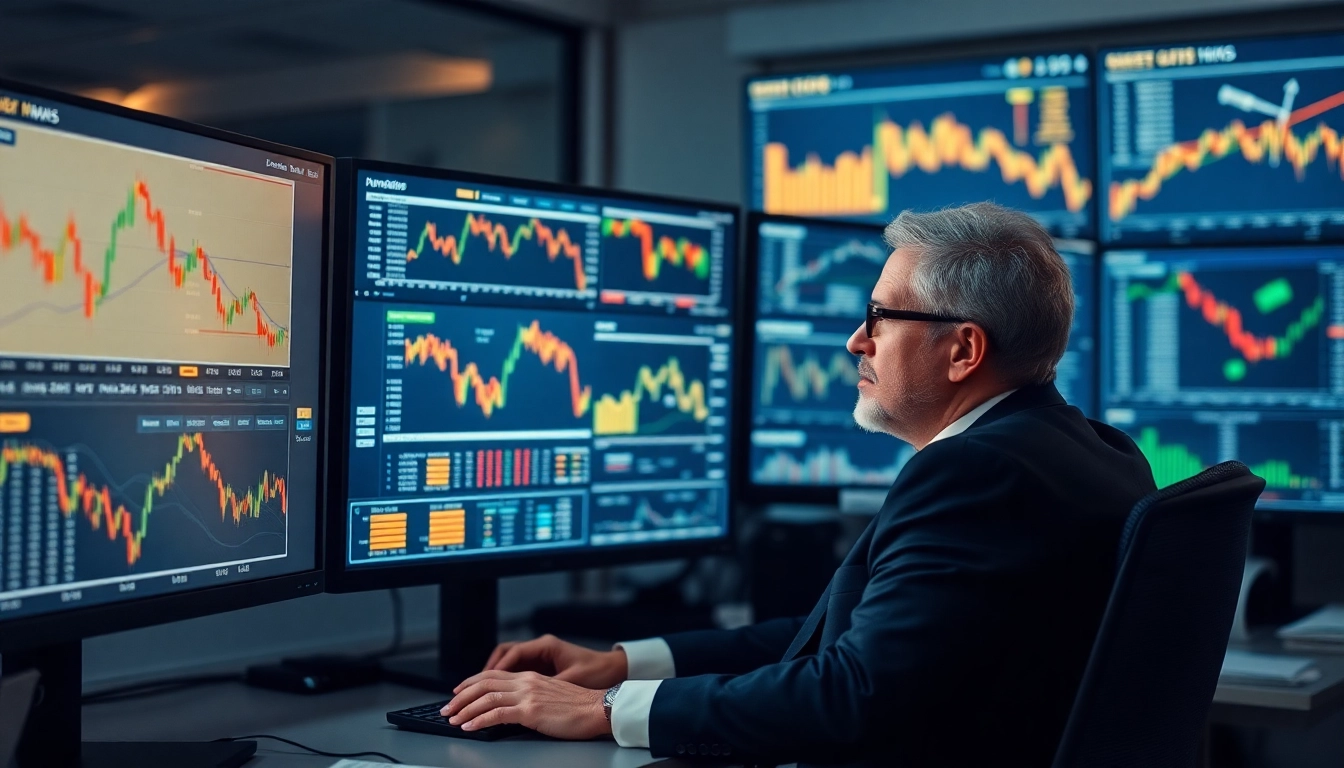Introduction to Global Market News and Its Significance
In an increasingly interconnected world, staying informed about Global Market News is essential for investors, business leaders, and policymakers alike. International financial trends influence domestic markets, affect exchange rates, commodity prices, and geopolitical stability. Recognizing and interpreting these signals provides a strategic edge in navigating volatility and identifying emerging opportunities. As global markets are intertwined, disruptions or shifts in one region can cascade across continents, creating both risks and avenues for growth.
Understanding the Impact of International Financial Trends
Global financial trends encompass a broad spectrum of economic indicators, policy decisions, geopolitical developments, and technological innovations. For example, shifts in monetary policy by major central banks like the Federal Reserve or the European Central Bank directly influence international capital flows, bond yields, and equity valuations. Similarly, geopolitical tensions such as trade disputes or conflicts can disrupt supply chains, leading to volatility in commodities and currencies. Monitoring these trends enables investors to anticipate market movements and mitigate risks effectively.
Data from leading sources like Reuters, CNBC, and Bloomberg provide real-time insights into these evolving trends. Understanding concepts such as global inflation rates, unemployment figures, and fiscal policies equips stakeholders to make informed decisions. For instance, a surge in inflation in emerging markets might signal inflationary pressures worldwide, prompting adjustments in investment strategies.
Why Staying Informed Enhances Investment Strategies
Information is the cornerstone of successful investment. Regularly tracking global market news enables investors to adapt to changing conditions swiftly, minimize losses, and capitalize on opportunities. For example, timely awareness of central bank policy shifts can inform decisions on asset allocation, risk appetite, and timing of trades. Being proactive rather than reactive allows for better portfolio optimization.
Moreover, integrating global news into your financial planning fosters a comprehensive understanding of macroeconomic catalysts impacting specific sectors or regions. This approach supports diversification strategies and hedges against unforeseen shocks, such as political upheavals or natural disasters affecting major economies.
Key Global Events Shaping Market Movements
Geopolitical Developments
Geopolitical events, including trade negotiations, sanctions, elections, and conflicts, invariably influence markets. Recent examples include tariff disputes between major economies, which led to increased market volatility, and elections that shift economic policies. Investors monitor these events through real-time news to evaluate potential impacts on currency stability, commodity prices, and global supply chains.
Economic Data Releases
Monthly reports like GDP growth rates, employment figures, retail sales, and manufacturing indices serve as critical indicators. For instance, a surprising rise in US employment might boost investor confidence and uplift markets, while slowing global growth figures may foreshadow downturns. Effective analysis of such data requires contextual understanding of regional anomalies and historical trends.
Monetary Policy and Central Bank Actions
Decisions on interest rates and quantitative easing or tightening influence liquidity and investor risk sentiment. Recent shifts toward rate hikes in advanced economies have impacted bond yields and stock valuations. Staying updated allows investors to adjust their strategies accordingly, balancing risk and return optimally.
Analyzing Global Market Data and Index Trends
Top Indices and Their Current Performance
Major indices such as the S&P 500, FTSE 100, DAX, and Nikkei 225 symbolize market health across regions. For example, recent data may reveal that the S&P 500 has experienced a correction due to tariff uncertainty, while European indices show resilience amid geopolitical stability. Tracking these indices provides a snapshot of regional economic conditions and investor sentiment.
Interpreting Market Volatility and Fluctuations
Volatility indices, like the VIX, measure market anxiety levels. Elevated volatility often indicates heightened uncertainty, requiring caution. Understanding the causes of fluctuations—be it economic data surprises, policy changes, or external shocks—enables investors to differentiate between transient noise and persistent trends.
Tools and Resources for Real-Time Market Tracking
Reliable sources such as Bloomberg, CNBC, and Moneycontrol offer live data, interactive charts, and analytics tools. Advanced platforms incorporate AI-driven forecasts and sentiment analysis, empowering users with actionable insights. Integrating these tools into your routine ensures timely response to market developments.
Strategies for Navigating the International Financial Landscape
Risk Management in a Global Context
Diversification across regions and asset classes remains fundamental. Employing hedging strategies using options, futures, and currencies can mitigate risks from geopolitical or economic shocks. For instance, holding a mix of developed and emerging markets reduces exposure to region-specific vulnerabilities.
Setting stop-loss orders, regularly reviewing portfolio allocations, and staying informed about global events are best practices. Additionally, developing an understanding of currency risk and employing hedging instruments help insulate investments from sudden currency fluctuations.
Investment Opportunities Amid Market Uncertainty
Despite volatility, opportunities abound. Sectors such as technology, renewable energy, and healthcare often show resilience. Emerging markets may present growth potential due to structural reforms or demographic trends. Identifying undervalued stocks or sectors that benefit from current trends requires diligent research and rapid execution.
Integrating Global News into Your Financial Planning
Creating a structured routine for monitoring global news, analyzing economic indicators, and reviewing geopolitical developments ensures your investment plan remains aligned with current realities. Establishing alerts on trusted platforms and subscribing to expert analysis can heighten your responsiveness and strategic agility.
Emerging Trends and Future Outlook in Global Markets
Technological Innovations Influencing Market Dynamics
Artificial intelligence, blockchain, and quantum computing are transforming how markets operate. Algorithmic trading and data analytics enhance speed and precision, influencing liquidity and volatility. Investing in sectors advancing these technologies can provide a competitive edge.
Geopolitical Factors Affecting International Investments
Shifting alliances, trade policies, and regional conflicts will continue to shape market trajectories. For example, rising tensions in the South China Sea or new trade agreements can influence shipping, manufacturing, and currency flows, impacting investor strategies globally.
Forecasting Global Market Movements for the Next Quarter
Combining macroeconomic data, political developments, and technological trends enables analysts to forecast short-term movements. For instance, anticipated policy changes or earnings reports can serve as guideposts for positioning ahead of market shifts.
Enhancing Your Knowledge: Staying Ahead with Reliable News Sources
Top Platforms and Their Unique Offerings
Leading sources like Reuters, CNBC, Bloomberg, and Financial Times offer comprehensive coverage, expert analysis, and real-time updates. Many provide proprietary tools such as sentiment analysis, economic calendars, and customized alerts. Using a combination of these sources ensures broad and accurate market perception.
Best Practices for Consistent Market Monitoring
Establish a daily routine: start with morning briefings, set alerts for key indicators, and review global news during market hours. Diversify your sources to avoid information bias and attend webinars or read analyst reports for deeper insights. Critical evaluation of news prevents knee-jerk reactions and supports strategic planning.
Leveraging Global Market News for Strategic Advantage
By synthesizing information from various sources, investors can identify early signals of trend reversals or growth opportunities. Incorporating news analysis into quantitative models or decision frameworks enhances predictive accuracy and agility.




